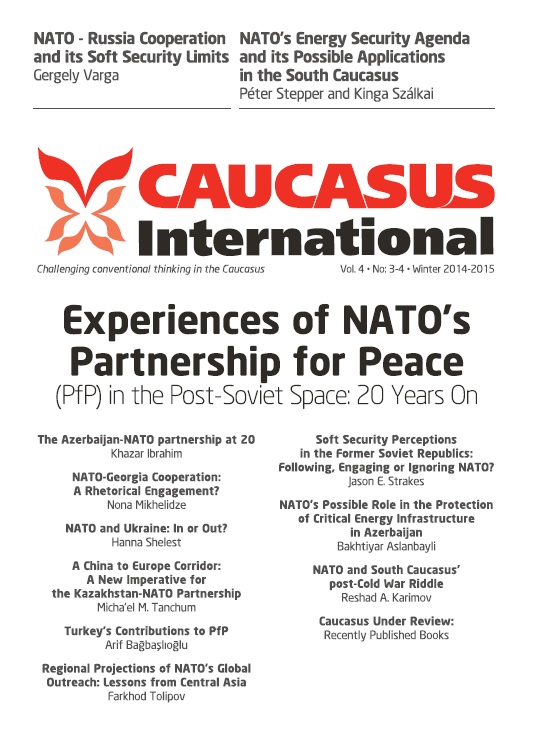Soft Security Perceptions in the Former Soviet Republics: Following, Engaging or Ignoring NATO?
The recognition of “soft” or non-traditional threats in the national security concepts of the former Soviet republics has become increasingly common during the past decade. Yet, this has also occurred in parallel with the gradual evolution of NATO strategic doctrine from its classical purpose of maintaining an effective counter - balance to Russia in continental Europe, to the vision of a transnational security community that protects member states from both military and non-military chal - lenges that affect societies as a whole. This article examines the linkage between soft security perceptions in the post-Soviet states and their relationship with NATO since independence. The analysis compares bilateral relations with NATO and the recognition of soft threats as indicated by their inclusion in the official national security documents of the Baltic States, East Europe/the Slavic Republics, the South Caucasus, and Central Asia since independence. The chronology of NATO policies and the identification of soft threat types are examined to determine to what extent they represent direct alignment with NATO soft security initiatives, indirect influ - ence of security assistance policies, or the pursuit of more independent definitions of national or Eurasian security as an alternative to renewed opposition between Europe and Russia alleged by advocates of further NATO enlargement.
Latest news
- 03/17/2020 Call for Submission: “Non-Alignment Movement and Its Perspective in International Affairs”. Deadline: 1 July 2020 2625 views
Popular articles
- 02/24/2020 The Role of Irredentism in Russia’s Foreign Policy 2536 views
- 02/24/2020 Construction of sub-national identity vis-à-vis parent state: Gagauz case in Moldova 2218 views
- 02/24/2020 The Conflict in Ukraine - The Geopolitics of Separatism and Divergent Identities (Commentary) 2072 views
- 02/24/2020 The Role of the Soviet Past in Contemporary Georgia 2044 views





